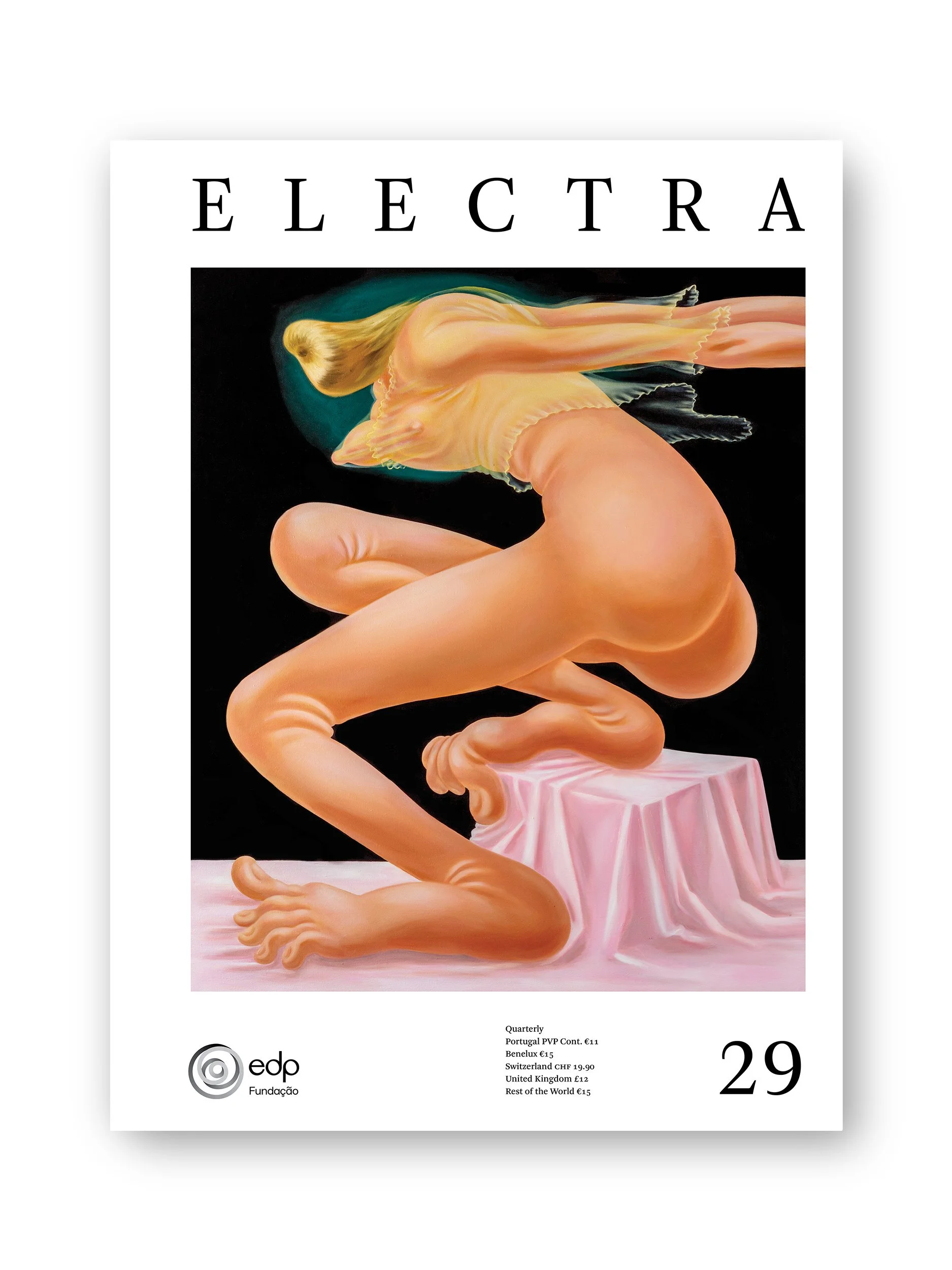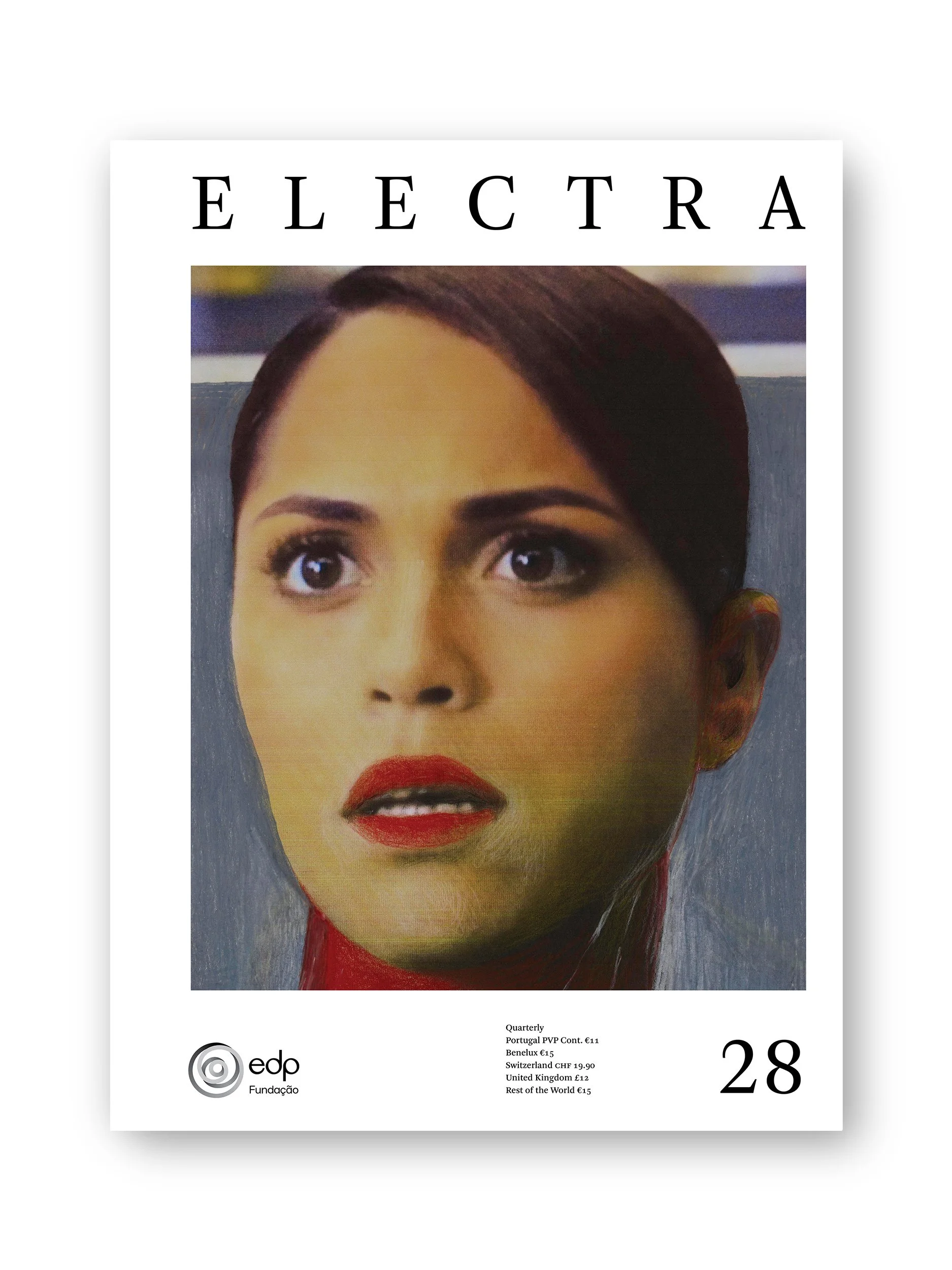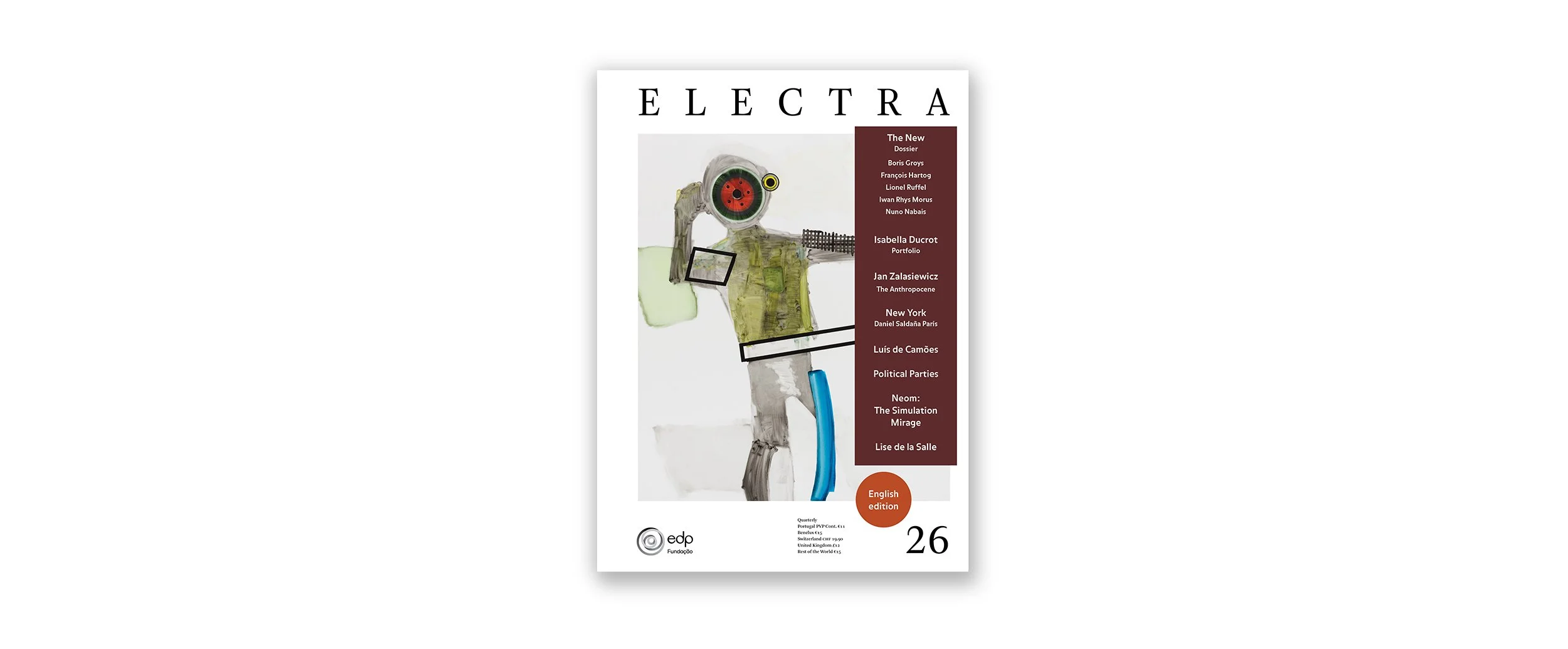....Electra 10 / Work..Electra 10 / Trabalho....
















....Electra 10 / Work..Electra 10 / Trabalho....
....
Work, and the future of work, are the topics covered in the dossier of the tenth issue of Electra magazine. This dossier approaches the subject through very diverse perspectives, and includes contributions by André Barata, Yann Moulier-Boutang, António Guerreiro, Helen Hester, José Nuno Matos, Jason Read and Nick Srnicek.
This edition’s “In the First Person” includes the publication of two interviews: one with Carlo Ginzburg, in which the renowned Italian historian recalls his intellectual trajectory and what made him one of the most important names in contemporary historiography, and one with Philippe Sands, one of the seminal figures in international law, who speaks to us about the contemporary world, its afflictions and threats, the legal actions against climate change and the changes brought about by the covid-19 pandemic.
Electra 10’s “Portfolio”, under the title Unseen Teen, is made up of pictures of the “invisible” youth in the USA by Alec Soth, one of the greatest North American photographers of our time. The photographer and his work are introduced by critic and curator Sérgio Mah.
In this tenth issue of Electra, psychoanalysis historian, researcher and former Freud Museum director Michael Molnar outlines a profile of Edward L. Bernays, known as the “father of public relations”, of the manipulation of the masses and the inventor of marketing and modern propaganda; neuroscientist Sebastian Dieguez discusses an excerpt from the novel The Plague, by Albert Camus; philosopher and professor Viriato Soromenho Marques approaches the concept of “sustainability”; sociologist Alessandro Dal Lago, an Italian from the North of Italy who moved to Palermo, paints a portrait of this baroque city, where nonetheless many historical eras overlap; Yves Michaud, philosopher and art critic, and Salvatore Settis, art historian and archaeologist, discuss the question of restitution of art works to their places of origin.
Under the section “Register”, art historian Nicola Hille interprets the gesture made by former chancellor of the Federal Republic of Germany Willy Brandt, when he visited the Warsaw ghetto and kneeled and laid a wreath in memory of the Jews murdered during World War II. The Book of Hours, by Serbian theatre director Jelena Bogovac, is a diary, written from Belgrade, at a time when the pandemic has taken over everything.
.
Softcover, 27 x 20 cm, 268 pages
—
..
O trabalho, e o futuro do trabalho, são os temas do dossier do décimo número da revista Electra. Abordando o tema sob perspectivas muito diversas, este dossier conta com a colaboração de André Barata, Yann Moulier-Boutang, António Guerreiro, Helen Hester, José Nuno Matos, Jason Read e Nick Srnicek.
Na secção “Primeira Pessoa” desta edição são publicadas duas entrevistas: a Carlo Ginzburg, em que o reconhecido historiador italiano recorda o seu percurso intelectual e o que o tornou um dos nomes mais importantes da historiografia contemporânea, e a Philippe Sands, uma das figuras de referência do direito internacional, que nos fala do mundo contemporâneo, dos seus males e ameaças, das acções judiciais contra as alterações climáticas e das mudanças criadas pela pandemia da covid-19.
O Portfólio da Electra 10, intitulado Unseen Teen, e constituído por imagens da juventude «invisível» dos EUA, é da autoria de Alec Soth, um dos maiores fotógrafos norte-americanos da actualidade, com introduçãoo de Sérgio Mah.
Na décima edição de Electra, o historiador da psicanálise, investigador e antigo director do Museu Freud, Michael Molnar, faz um perfil de Edward L. Bernays conhecido como «o pai das relações públicas», da manipulação de massas e o inventor do marketing e da propaganda moderna; o neurocientista Sebastian Dieguez comenta uma passagem do romance A Peste, de Albert Camus; o filósofo e professor Viriato Soromenho Marques aborda o conceito de “sustentabilidade”; o sociólogo Alessandro Dal Lago, um italiano do Norte que foi viver para Palermo, faz um retrato desta cidade barroca, mas onde se sobrepõem muitas épocas históricas; Yves Michaud, filósofo e crítico de arte, e Salvatore Settis, historiador de arte e arqueólogo, discutem a questão da restituição das obras de arte à sua origem.
Na secção “Registo” a historiadora de arte Nicola Hille interpreta o gesto do chanceler da República Federal da Alemanha, Willy Brandt, quando em visita ao Gueto de Varsóvia, depõe uma coroa de flores em memória dos judeus assassinados na Segunda Guerra Mundial e se ajoelha. O “Livro de Horas”, da autoria da encenadora sérvia Jelena Bogovac é um diário, escrito a partir de Belgrado, num tempo em que a pandemia da covid-19 tomou conta de tudo.
.
Capa mole, 27 x 20 cm, 268 páginas
—
....
“....“Will the traditional, waged, permanent employment contract soon become a privilege reserved for a minority of the population? Individualised forms of employment (part-time, temporary, intermittent, auxiliary without status, timework) form the basis of rare job opportunities. The decline is illustrated by the German practice of taking two or three jobs simultaneously in order to have a decent standard of living, as well as by the overpaid ‘bullshit jobs’ described by David Graeber, whose usefulness is questionable, while the contribution of traditional wages to the national income has been reducing since the 1980s. ..Irá o contrato salarial clássico por tempo indeterminado ser a breve trecho um privilégio reservado a uma minoria da população? As formas particulares de emprego (a tempo parcial, temporário, intermitente, auxiliar sem estatuto, subcontratado) constituem o essencial das raras criações de emprego. Os slash jobs na Alemanha (a acumulação de dois, três trabalhos ao mesmo tempo para se ter um nível de vida decente), os «Bullshit jobs» de David Graeber, os empregos de utilidade duvidosa que são sobre-remunerados ao passo que a proporção dos salários clássicos no rendimento nacional decresce desde os anos 80 ilustram esse declínio. ....”
“....I wrote an essay on microhistory where I talked about what I learned with Tolstoy and the challenge that he posed for me. He was the one who taught me that in order to relate a battle we should relate the experience of everyone who participated in it. Not only the general’s experience but also that of the humblest soldier. In retrospect, my idea of microhistory stems from there. ..Escrevi um ensaio sobre a micro-história, onde falei daquilo que aprendi com Tolstoi e do desafio que ele constituiu para mim. Foi ele quem me ensinou que para contar uma batalha devemos contar a experiência de todos os que nela participaram. Não só a experiência do general, mas também a do mais humilde soldado. Retrospectivamente, percebo que a minha ideia de micro-história vem daí. ....”
-
....
Director / José Manuel dos Santos
Editor / António Guerreiro
Portfolio / Alec Soth
Published by Fundação EDP
Autumn 2020.
Softcover, 27 x 20 cm, 268 pages
ISBN 978 989 5496 419.. Director / José Manuel dos Santos
Editor / António Guerreiro
Portfólio / Alec Soth
Publicado por Fundação EDP
Outono 2020.Capa mole, 27 x 20 cm, 268 páginas
ISBN 978 989 5496 419....












One of the most consistent and yet fully surprising architects working today, Álvaro Siza, Pritzker Prize shares his List spanning from fundamental editions on Alvar Aalto or Walther Gropius, to lesser-known Italian modernism, Brazil, critical history and philosophy, a striking novel, and poetry, from Portuguese to Greek and Persian masters.